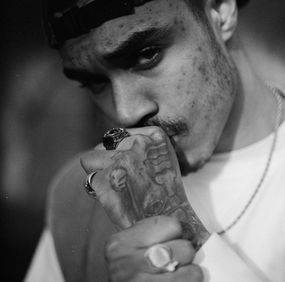![[GIG REVIEW] The Art of Presence: A Night With JERUB at Jazz Cafe](https://static.wixstatic.com/media/593d58_a2045221b04a4357a400c4564a588925~mv2.jpg/v1/fill/w_250,h_250,fp_0.50_0.50,q_30,blur_30,enc_avif,quality_auto/593d58_a2045221b04a4357a400c4564a588925~mv2.webp)
![[GIG REVIEW] The Art of Presence: A Night With JERUB at Jazz Cafe](https://static.wixstatic.com/media/593d58_a2045221b04a4357a400c4564a588925~mv2.jpg/v1/fill/w_285,h_285,fp_0.50_0.50,q_90,enc_avif,quality_auto/593d58_a2045221b04a4357a400c4564a588925~mv2.webp)
[GIG REVIEW] The Art of Presence: A Night With JERUB at Jazz Cafe
A live experience that felt intimate, powerful, and deeply human


Reading & Leeds Festival 2026: Is This the Best Lineup in Years?
Reading and Leeds festival is going big for 2026. The first announcement dropped and the lineup already looks stacked, with a run of headliners that feel fully rooted in what UK and Irish music is doing right now.


We Out Here Announces First Wave of 2026 Lineup, Including Arthur Verocai, Mulutu Astatke, Stereolab, MIKE and Yazmin Lacey
Following a glowing 2025 edition, We Out Here returns to the list of the UK’s most loved musical institutions, taking to the 2026 festival circuit for another fruitful year and announcing a vibrant line-up of eclectic global names in the jazz-soul scene and beyond.


‘Talk Of The Town’ sees Irish Rapper Curtisy Closing out the Year Just as Strong as he Started it
Irish-born Curtisy has had a remarkable year both internationally and at home. He states in his Instagram bio, “It’s over for rappers”. I, for one, believe him.


Window Kid And Shapes Rework Basement Jaxx’s 'Red Alert' Into 'Folklore'
Nottingham’s own Window Kid returns this November with “Folklore,” a fresh UK rap single produced by Shapes that flips Basement Jaxx’s Red Alert. It’s already blowing up on TikTok. He’s also touring the UK this November and December, bringing his witty bars and bass-driven energy live.






















Went to see if the author's name sounded Argentine and was surprised when I saw it didn't. She not only perfectly got everything musically speaking but also got every little detail lyrically too, and that doesn't just require knowing the language but also typical Argentine localisms, mannerisms and cultural quirks.